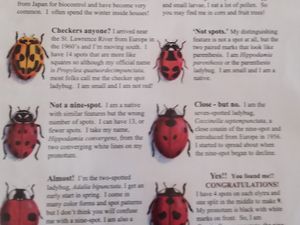Systemic Sustainability
Environmental Curriculum and Instruction
1.1 Curriculum and Instruction
Elementary & middle schools must provide one example of outdoor/environmental instruction per grade level.
High schools must provide one example of outdoor/environmental instruction in four subjects (which may include multiple different differents sciences).
As part of our ecology unit, 6th grade students participated in an outdoor activity where they assessed the school grounds and identified areas with invasive species. They proposed specific actions that could be done to improve the school grounds and support native species living in the area. Students made milkweed seed bombs and spread them throughout the no-mow zone to support the monarch population.
Driving unit question: How can we support the native wildlife species in our area? Focus question: How are organisms and populations affected by the availability of resources?
8th Grade students were tasked to design a new exhibit that could be used at the Maryland Science Center to transport visitors through Maryland's "deep time." The exhibit should help the visitors understand how the life forms in Maryland changed over time.
Student dioramas for their "deep time" exhibit showcasing how the life forms in Maryland have changed over time.
Student dioramas for their "deep time" exhibit showcasing how the life forms in Maryland have changed over time.
Student dioramas for their "deep time" exhibit showcasing how the life forms in Maryland have changed over time.
Student dioramas for their "deep time" exhibit showcasing how the life forms in Maryland have changed over time.
6th grade students discuss the problems with our use of plastic (plastic pollution and our reliance on the nonrenewable resource of oil). Students create and analyze a bioplastic using corn.
At the end of the year, 8th grade students complete the lesson "Recycle City" This lesson teaches students the importance of recycling especially in a city situation. Online resource: https://www3.epa.gov/recyclecity/
Recycle City (37.81 KB)
Student worksheet for Recycle City classroom lesson
Students answer questions about their daily activities and use the corresponding values given on the work sheet to estimate their carbon footprint.
Students do not know what this means and this lesson makes them realize what their actions do directly to the environment.
Carbon_Footprint_Worksheet (38.69 KB)
Student worksheet
Students in 8th grade Science, identify at least 3 causes for fluctuations in the Blue Crab population and the accompanying effects. Students use online resources to complete the cause and effect organizer.
Human_Population_Growth_and_Blue_Crabs (18.22 KB)
Student worksheet
8th Grade students celebrate the end of the year and the Chesapeake Bay watershed with our annual Bunker Hill Day.
Students get to travel to Bunker Hill and complete various stations including Water Quality station: Students complete a variety of tests, pH, dissolved oxygen, temp. etc. in order to determine the health of the Gunpowder
Benthic station: Students collect various benthic creatures and use their tolerance level in order to determine if the Gunpowder is healthy.
Bunker Hill Map (82.96 KB)
Bunker Hill map with stations
Bunker Hill Mod 1 Lesson (1.22 MB)
Student lesson
Topics include: How Long Does Trash Last in our Aquatic Ecosystems? How too Much Nitrates get into the Water System Solutions: What is already being done Changes in Freshwater Aquatic Ecosystems Caused by Human Activity
Mrs. Barr's 8th grade Art students research wildlife in the Chesapeake Bay region and use various clay techniques in order to create a Chia Pet based on their selected wildlife.
Chia Pets Day 11 Growing Our Pets (2.78 MB)
Teacher Lesson
Chesapeake Bay Chia Pets Introduction Day 1 (8.19 MB)
Teacher Lesson
Students collected data and observations of invasive plants found around our schoolyard and in their own communities and backyards. Students then selected and researched an invasive plant. Students turned their research into a wanted posted to be shared around school.
Students taking Intermediate Spanish and French learned about endangered animals in Unit 2. We began the unit by identifying and comparing how they move, their habitats, their eating habits, and their physical characteristics. We continued with learning why various species of animals are in danger of extinction and what we can do to save the animals and their habitats. Students created a license plate and gave a presentation to their classmates to highlight their importance and how we can make a difference.
Students in 7th grade science completed a survey of plants growing around our schoolyard. Students used various apps to identify native and invasive plants. Students researched invasive plants to determine how they ended up in our ecosystem, the structures of the plants that allowed them to thrive within our ecosystem and how to remove them from our ecosystem. Students then created a wanted poster with their information to inform others about their selected invasive plant.
Students in 6th grade science participated in an activity with Matt Budinger and Katie Dell from the Office of Science. Matt and Katie led an ecology lesson and had students survey the no-mow zone for invasive plants and trees.
The greenhouse is an important part of our agriculture program that helps us teach about sustainable agricultures and teaches students how to raise their own food. 6th grade uses the greenhouse and hydroponics lab to learn about various growing methods and plant growth needs. We raise various flowers and vegetables to transfer to our outdoor raised garden beds and sell what we raise to our staff and community to raise funds to support the next crop and greenhouse upgrades.
Students focus on the following topics: Plants What is agriculture? Growing Plants Photosynthesis Parts of a flower Growing conditions Alternative growing methods Propagation Floriculture History of floriculture Floral Design Using/ marketing flowers
In 7th grade art, students discovered and researched an endangered animal to gather information for an informative painting.
Teacher Directions: "For your next artwork, you will be using various brush techniques and color mixing to create a realistic portrait of an animal. In choosing an animal, our focus will be on the animals around the world who are endangered, to raise awareness about the status of these amazing creatures. Today, you will complete some preliminary research about an animal on the endangered list. Try to choose an animal you are not familiar with, and if possible, choose a different animal then the other students at your table. Use the WWF website to find select your animal. You may do outside research as well. https://www.worldwildlife.org/species/directory?direction=desc&sort=extinction_status "
This unit focuses on energy, energy transformations and the law of conservation of energy. While learning about energy transformations, students learned about energy efficiency and renewable energy like wind turbines. Students applied their learning to design a solar cooker that was used to make a s'more. Students were encouraged to use recycled materials for their designs.
Goal: I can propose ways to make a household appliance more energy efficient.
Overview: For this assignment, you will investigate how everyday appliances work by diagramming the energy transfers within that specific appliance. Objects could include household appliances, pieces of technology, etc. You will research how energy flows and is transformed from one form to another through that object, then propose ways to make that appliance more energy efficient.
1.2 Green School Awareness
1.2.1 School Wide Awareness - Staff
Demonstrate that all school personnel are aware of your school's Green School status and application process.
As we prepare our Green School Application, information has been shared to staff through emails and meetings.
Teachers have communicated and contributed various environmental activities utilized in their classrooms and clubs.
The Science Department and Green Team met to discuss the application process. Teachers contributed environmental activities that they use in their classrooms in 6th, 7th and 8th grade.
Information about MAEOE and the purpose of the Green School application was shared with the staff via email and during our after school staff meeting.
Teachers were asked to complete a survey to help support the application process. The survey can be seen here: https://forms.gle/SqnD7ZSvdBsrDCTX6
This email was sent to staff explaining the purpose of the Green School Application and asking for help with the application process. Teachers were asked to complete the Google Form to help support the application. (https://forms.gle/SqnD7ZSvdBsrDCTX6 )
Green School ppt (2.83 MB)
This powerpoint was created to share information at our after school staff meeting on 2/13
Environmental Professional Development for Teachers
1.3.1 Environmental Professional Development for Teachers
Demonstrate that 10% of staff have completed an environmental PD. Instructional staff is defined as any staff that manages a gradebook.
- New Schools must have all PD completed within the past 2 academic years.
- Renewing schools must have all PD completed within the past 4 academic years.
A teacher who has participated in multiple workshops may only be counted once..
Staff participated in various professional development opportunities from the Office of Science, The National Aquarium, Camp Puh'tok, Ladew Gardens and Discovery Education.
Terrapins in the Classroom training at the Animal Care and Rescue Center in Baltimore. The training was led by Aidan Murphy and included a lecture and review of data from Dr. Willem Roosenburg from Ohio University.
Teachers engaged in various trainings and session of pd led by the Office of Science.
6th grade teachers focused on their ecology unit and explored an owl population growth simulation.
Grade_6_August_2022_PSD (4.63 MB)
Powerpoint provided by the BCPS Office of Science
Owl_Population_Growth_Simulation (104.62 KB)
Owl Population Growth Simulation Worksheet
Teachers engaged in various trainings and session of pd led by the Office of Science.
6th grade teachers focused on their ecology unit and explored an owl population growth simulation.
Grade_6_August_2022_PSD (4.63 MB)
Powerpoint provided by the BCPS Office of Science
Teachers engaged in various trainings and session of pd led by the Office of Science.
6th grade teachers focused on their ecology unit and explored an owl population growth simulation.
Grade_6_August_2022_PSD (4.63 MB)
Powerpoint provided by the BCPS Office of Science
Teachers engaged in various trainings and session of pd led by the Office of Science.
6th grade teachers focused on their ecology unit and explored an owl population growth simulation.
Grade_6_August_2022_PSD (4.63 MB)
Powerpoint provided by the BCPS Office of Science
Teachers engaged in various trainings and session of pd led by the Office of Science.
6th grade teachers focused on their ecology unit and explored an owl population growth simulation.
Grade_6_August_2022_PSD (4.63 MB)
Powerpoint provided by the BCPS Office of Science
Teachers engaged in various trainings and session of pd led by the Office of Science.
6th grade teachers focused on their ecology unit and explored an owl population growth simulation.
Grade_6_August_2022_PSD (4.63 MB)
Powerpoint provided by the BCPS Office of Science
Teachers engaged in various trainings and session of pd led by the Office of Science.
6th grade teachers focused on their ecology unit and explored an owl population growth simulation.
Grade_6_August_2022_PSD (4.63 MB)
Powerpoint provided by the BCPS Office of Science
Teachers engaged in various trainings and session of pd led by the Office of Science.
6th grade teachers focused on their ecology unit and explored an owl population growth simulation.
Grade_6_August_2022_PSD (4.63 MB)
Powerpoint provided by the BCPS Office of Science
Teachers engaged in various trainings and session of pd led by the Office of Science.
6th grade teachers focused on their ecology unit and explored an owl population growth simulation.
Grade_6_August_2022_PSD (4.63 MB)
Powerpoint provided by the BCPS Office of Science
Teachers engaged in various trainings and session of pd led by the Office of Science.
6th grade teachers focused on their ecology unit and explored an owl population growth simulation.
Grade_6_August_2022_PSD (4.63 MB)
Powerpoint provided by the BCPS Office of Science
1.4 Achieving Sustainable Schools
1.4.1 School-Wide Staff Sustainability
Demonstrate the sustainability practices your teachers, staff, and other personnel have implemented school-wide to make your school green. Any actions involving students belong under Objective 2.
Staff uses electronic newsletters and attempts to reduce paper use by using double-sided copying.
Teachers use digital lessons on Google and Microsoft aps and programs rather than copying worksheets for lessons
Installation of energy-efficient lighting or motion-sensitive lights
Teachers using green cleaners in classrooms
Teachers and students recycle
Student are encouraged to upcycle materials (for example using cereal boxes to make pinatas in Spanish class)
Conserving energy by turning off lights and unplugging when I am not using the appliance/device.
Recycling papers (writing on the back) to use for jotting note.
Take compostable items home to be composted (orange rinds, apple cores, etc.)
Use reusable containers and silverware rather than disposable bags and plasticware.
Recycle, turn off lights, limit computer use and paper use when possible
Minimize copies, recycling is encouraged.
Using the Math workbooks instead of spiral notebooks and worksheets have helped cut back on paper usage.
Student Action
Schools must document at least Four that address at least three of the listed sustainability practices.
These are student actions not adult actions. Adult sustainable actions can be documented in Objective 1.4.
2.1 Water Conservation/Pollution Prevention
2.1 Water Conservation/Pollution Prevention
Two 55 gallon rain barrels were purchased for students to install and use around the schoolyard. The Baysavers Club installed one rain barrel in the courtyard area to add to their pollinator garden and the Agriscience Department added the second rain barrel for students to use near the back gardens.
Facilities-NH-02.22.2022-Schoolyard Rain BarreL Sale-Attachment (1.4 MB)
This is the flyer that was used to promote the rain barrel sale to schools in Baltimore County.
Students remove litter from schoolyards, focused on removing that litter before it reaches the waterways (stream restoration).
https://www.baltimorecountymd.gov/departments/environment/clean-green/clean-green-15
The Clean Green 15 is a program with the Baltimore County Government. We submit our data and they track the amount of trash collected as part of the Department of Environmental Protection and Sustainability’s Chesapeake Bay restoration goals.
Students create hydroponic gardening systems in our school's green house. Students learn about the importance and purpose of hydroponic gardening systems.
2.2 Energy Conservation
2.2 Energy Conservation
Students performed an energy audit. Students surveyed classrooms at the end of the school day to see if the lights were left on or if they were turned off.
Students label the light switches throughout the school with signs or switch-plates encouraging energy conservation and reducing our impact on climate change
Students created light switch signs and placed them around the school to remind teachers and students to turn off the lights when the room is not in use.
Students add light switch signs around the school to remind teachers and students to turn off the lights when the room is not in use.
Students are collecting data as they complete an energy audit. Each week they count the number of classrooms that have left the lights on at the end of the day compared to the number of classrooms with the lights off.
Students have created announcements to help remind teachers and students to turn off lights when the classrooms and areas are not in use.
Students in 7th Grade Science researched energy transformations and energy efficient buildings. Students completed an energy efficiency research project, Discovery Education Lab and created public service announcements and posters to promote saving energy in our school building. Students' PSAs included suggestions for students to help save energy in our school.
2.3 Solid Waste Reduction
2.3 Solid Waste Reduction
Students in the Bay Savers Club wanted to promote recycling hall passes during our celebration of Earth Day in 2022. Students placed various collection boxes in teachers’ classrooms to collect the used hall passes. Students created a morning announcement to explain and promote the activity. Once students collected enough passes, they created a tree mural out of the recycled hall passes. They also created a sign that said “We use so many passes every day! The leaves on this tree are made of only 3 days of hall passes from only science rooms. It’s a lot! Remember to recycle.”
Students in our environmental club, The Bay Savers, sign up weekly to pick up recycling. Student create three teams to circulate the school hallways and pick up the recycling from the classrooms. Student Green teams regularly monitor, track, and/or manage the school recycling bins
2.4 Habitat Restoration
2.4 Habitat Restoration
Students plant and tend a native plant garden in schoolyard (pollinator garden in the courtyard)
Students researched Maryland native plants, they researched and planned for the amount of space each plant would need and the benefits the plants would bring to the pollinator garden (what pollinators were attracted to each plant), they weeded and maintained the area, they watered and cared for the plants, they installed a rain barrel and made and installed blue bird houses
Students researched the design for bluebird houses. They created a budget and build bluebird houses to install around our schoolyard. Students monitor bird boxes throughout the spring and clean them at the end of the nesting season.
2.5 Opportunities for Nature Exploration
2.5 Opportunities for Nature Exploration
Students grow food in gardens at school
The greenhouse is an important part of our agriculture program that helps us teach about sustainable agricultures and teaches students how to raise their own food. 6th grade uses the greenhouse and hydroponics lab to learn about various growing methods and plant growth needs. We raise various flowers and vegetables to transfer to our outdoor raised garden beds and sell what we raise to our staff and community to raise funds to support the next crop and greenhouse upgrades.
Students identify native and invasive trees and plants in the schoolyard. Students identify an invasive species that is negatively impacting our schoolyard community and create a "Wanted" poster to educate people of the harmful invasive plants we have in our community.
2.6 Responsible Transportation
2.7 Healthy Indoor Environments
2.7 Healthy Indoor Environments
Students grow and donate and/or eat healthy food in school gardens
The greenhouse is an important part of our agriculture program that helps us teach about sustainable agricultures and teaches students how to raise their own food. 6th grade uses the greenhouse and hydroponics lab to learn about various growing methods and plant growth needs. We raise various flowers and vegetables to transfer to our outdoor raised garden beds and sell what we raise to our staff and community to raise funds to support the next crop and greenhouse upgrades.
2.8 Citzen/Community/Participatory Science
2.8 Citizen/Community/Participatory Science
Students look for and collect data on native ladybugs and submit information online
Students participated in the Lost Ladybug Project through the National Science Foundation and Cornell University.
Students enjoyed submitting their photographs of the bugs they found.
Students participated in the Lost Ladybug Project through the National Science Foundation and Cornell University.
Students enjoyed submitting their photographs of the bugs they found.
Community Partnership
Demonstrate that your school is forming long-term partnerships to foster environmental stewardship and cultivate community wellness through real-world connections.
3.1 Community Partnerships
3.1.1 School Active in Community
Describe at least one environmentally-focused partnership in which your school is working to benefit your community.
We participated in the program 2022-2023, 2021-2022, 2020-2021 (virtual) and 2019-2020
Each year, we attended a teacher training to review the program expectations, meet the educator from the National Aquarium and review the data from Dr. Roosenburg from Ohio University.
Students participate in raising and caring for a northern diamondback terrapin hatchling. Students collect data weekly. Students feed, clean and maintain tank parameters to make sure the hatchling thrives in our care. Students submit data to the aquarium's animal care team monthly.
Students cleaned and maintained the parameters of the tank. They took weekly data on air and water temperature and tracked the salinity for the water.
Students learned the anatomy of the terrapin and collected data weekly. Students massed the terrapin, measured it's height, length of plasteron and length of carapace.
Students in the FFA club make blankets to donate to local animal shelters.
Students in the FFA Club are collecting donations for the Baltimore Human Society from 3/13- 3/31 2023.
Students created posters and announcements to share information about the collection.
Students collected pet food, treats, toys, enrichment items, pet care products and janitorial supplies.
3.1.2 Community Active in the School
Describe at least one partnership in which a community partner is benefitting the school. These actions and projects occur on or near school grounds with support from the partner.
Environmental speaker comes to do an environmental education assembly
8th Grade students learned about Chesapeake Bay wildlife and invasives species
7th Grade students learned about animal adaptations and reptiles
6th Grade students learn about Maryland Native Species
3.2 Additional Achievements
3.2 Additional Achievements optional
Share any environmentally-related awards, special recognition, certifications, or other achievements that your school, staff or students have accomplished.
__20230201092739.jpeg)
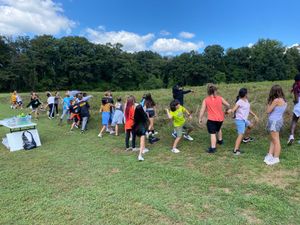
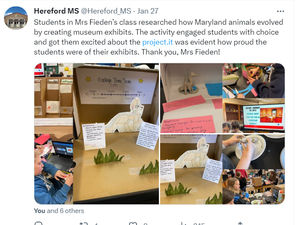
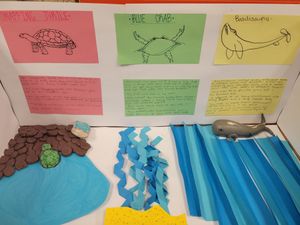


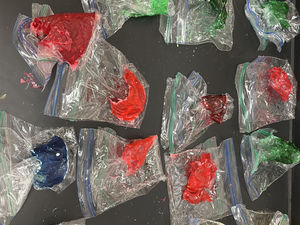
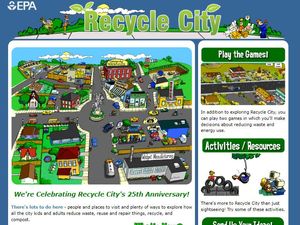
__20230202091644.jpg)
__20230202091644.jpg)

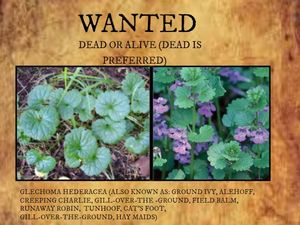





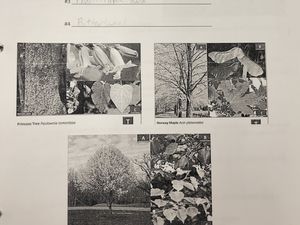
__20230316210988.jpeg)
__20230316210988.jpeg)

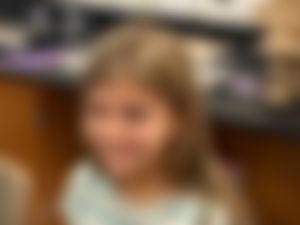

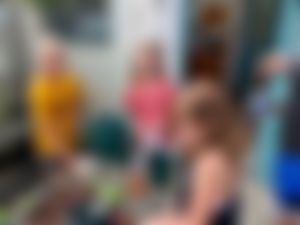

__20230316201061.jpg)
__20230316201073.jpg)
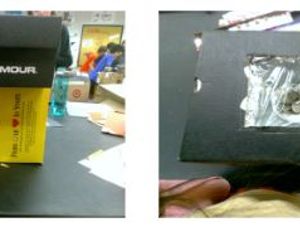









__20230129161554.jpg)





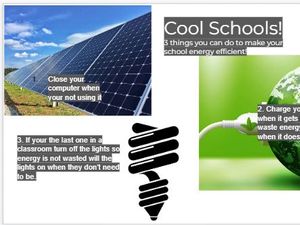


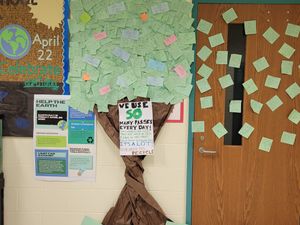
__20230201093527.jpg)







